Putting on a successful event requires a considerable amount of work.
Even after you’ve reserved the venue and paid the deposit, vetted and chosen the speakers, gotten your carefully selected sponsors on board, and planned the agenda down to the last detail, you still have work to do. You have to get the word out about your event.
That’s why you should create an event marketing plan.
There are dozens of strategies you could include in your plan, but trying to incorporate them all will just leave you feeling frazzled and overwhelmed. It’s better to be selective and choose those that will work best for your audience, the kind of event you’re producing, and your attendance goals.
With that in mind, we offer the following suggestions, which can help you create a marketing plan that gets attendees to your event — and just as important — spread the word about your company even to those who can’t attend. Most of these tips work just as well for a virtual event as an in-person one.
7 steps for creating an effective event marketing plan
1. Determine your event goals
Before you create your marketing plan, define what success looks like to you.
Defining a successful event might include setting targets for
- Attendance or an increase in attendance over the previous year
- The number of meetings with current clients and potential new clients
- The number of networking meetings with other industry professionals
- The number of leads generated
- The amount of sales generated
Other, less tangible goals might include
- Raising brand awareness
- Creating business partnerships
2. Identify your target audience for the event
It’s important to keep in mind that the target audience for your event might not be the same audience as the one for your business overall; in fact, it’s likely a narrower slice of that audience.
How can you get to know who your event-specific customers are? Review your current customer analytics to uncover the behavior patterns of your best customers. You can also conduct a survey using a tool like Jotform.
If you go the survey route, you can ask questions about what other events your customers have attended or plan to attend, what they hope to get out of attending the event, what they’re most looking forward to experiencing at your event, and what marketing channels they value the most (so you know where to focus your efforts).
It’s so important to understand the ideal audience for your event before you start marketing because this will help you craft your messaging and content for the right audience — those who are most likely to attend.
3. Create a conversion-optimized event website
Your event website will be the hub of all your digital marketing efforts, so it’s important to get it right. This is where you’ll send anyone interested in learning more about the event and where you’ll showcase the event location, the speakers, the sponsors, your conference agenda, workshops and special guests, and other benefits of attending the event.
A successful event website will clearly convey your event’s value proposition (the benefits attendees will gain from attending). Make sure that you optimize your website for important conversions like event registrations and email subscriptions (so you can keep in touch with potential and registered attendees and other interested parties in the months and weeks leading up to the event).
Now that you know more about the audience you’re trying to attract, incorporate targeted messaging that will appeal to that audience in your website copy.
For example, let’s say your event is geared toward local entrepreneurs and small business owners who want to grow and scale their business and increase their return on investment (ROI). They’re doing well, but they want to learn a few next-level tactics and strategies to optimize growth.
The value proposition on your homepage might look something like this:
The San Diego Small Business Expo
For successful small business owners and entrepreneurs who want to grow and scale their business in 2020 and beyond
Then you could include some copy that further explains who the event is for:
The San Diego Small Business Expo is the region’s only large-scale event specifically for entrepreneurs and small business owners where you can
- Connect with like-minded entrepreneurs
- Network and get leads
- Attend workshops and educational breakouts
- Access resources to help improve business ROI
Be sure to include copy on your event website that answers all the questions a potential event attendee might have — including info about the location, dates, nearby hotels, speakers, sponsors, event registration costs and deadlines, the conference agenda, and so on.
4. Create a valuable opt-in freebie for your event website
Next, create a cheat sheet, checklist, or other valuable opt-in freebie for your event website. Make this asset available for instant download to get potential and committed attendees onto your email list so you can keep in touch with them leading up to the event.
Your opt-in asset should be something compelling enough to potential attendees that signing up for the email list feels like a no-brainer.
For example, you could offer a checklist of “Top 10 strategies for getting the most out of a business expo” or “Top 10 ways to develop profitable relationships at a trade show.” Your opt-in freebie should relate to what your ideal customers hope to get out of attending the event, which you can determine from the research you did in step two.
Place your opt-in opportunity in several key places on your event website to maximize the number of email signups.
5. Drive traffic to your event website
There are two methods you can use to get eyeballs on your event site — search engine optimization (SEO) and paid traffic.
In the weeks (or months, depending on how organized you are) leading up to the event, optimize your website to include keywords related to what your audience might be searching for. While SEO is too vast a topic to cover in this article, you can get an overview of how to use SEO for lead generation here.
You can also promote your event website through paid advertising — such as social media ads on LinkedIn, Facebook, Instagram, and Twitter. Where you spend your social media advertising dollars depends on where your target market hangs out online. You’ll know this from the research you did in step two. Also consider paid search ads on Google.
6. Create an event content strategy
A great way to build anticipation for your event is with a compelling content strategy that rolls out content pieces periodically leading up to the event. For example, you could create a series of text or video interviews with speakers sharing a few engaging snippets of what they’ll be presenting or interviews with past attendees talking about what they gained from attending your most recent event.
You could also write and distribute blog posts with behind-the-scenes event info or a day in the life of a successful event. And be sure to create content pieces that answer potential objections about attending your event.
Content can include blog posts, videos, press releases, social media updates, case studies, FAQs, emails, and more. In fact, creating content assets for your event promotion will take up a big chunk of your overall promotion time, so the sooner you can get started in advance of your event, the better.
7. Create an email marketing strategy
Plan a series of emails to complement your content marketing efforts — this is why you want that opt-in freebie/email subscriber signup opportunity in several prominent places on your website.
Once you’ve set up your email list, send subscribers the content pieces mentioned in step six, along with a strategic nurture sequence that shares the benefits of attending your event.
When it gets closer to your event registration deadline, you can send ticket promos. You might send a “Ticket prices are going up!” message later, if appropriate. If your event is close to selling out, you’ll definitely want to share this information — the fear of missing out is a powerful motivator.
Other elements of an effective event marketing plan could include asking registered attendees to share event info in exchange for entry into a contest, co-marketing initiatives with speakers and sponsors, and targeted social media campaigns.
A successful event marketing plan must be holistic, well thought-out, and — most important — planned far enough in advance to take full advantage of the digital outreach methods mentioned above. Because there are many ways to market an event in addition to what we’ve covered here, it can feel overwhelming. The good news is, you don’t need to do them all. If you start with the seven steps above and implement them strategically, you’ll be well on your way to event success — live or virtual.








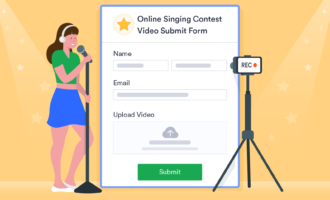
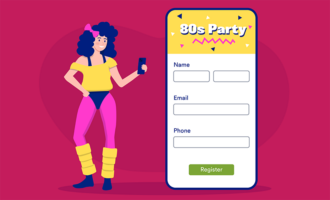

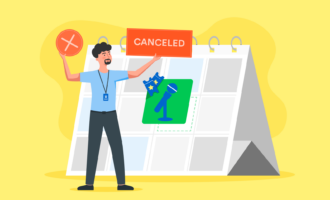







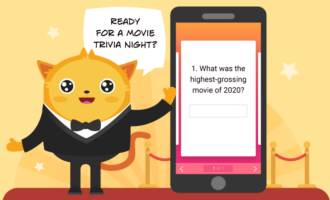






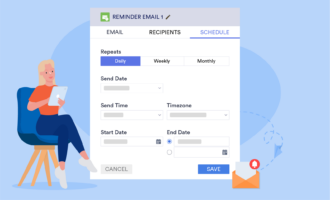


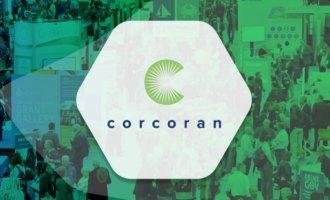


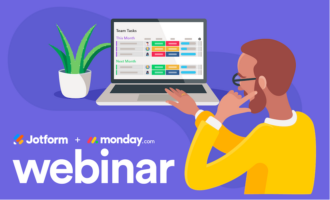








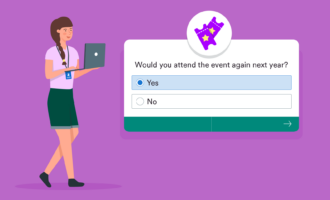











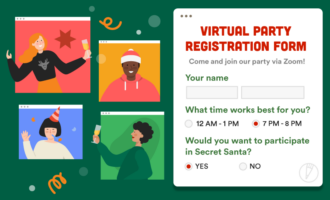





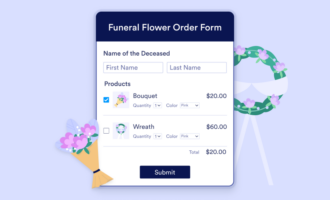
Send Comment: